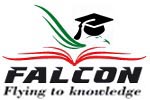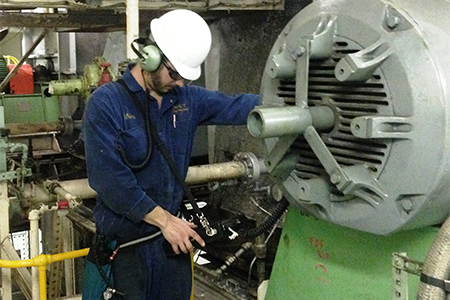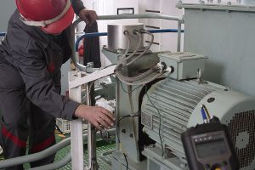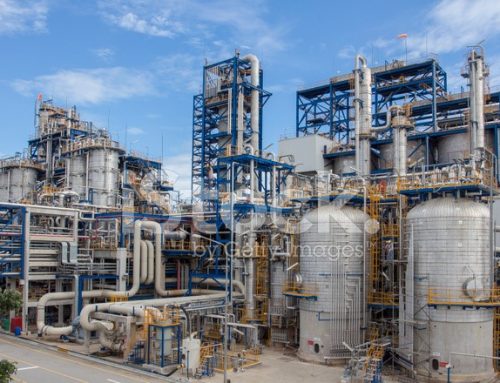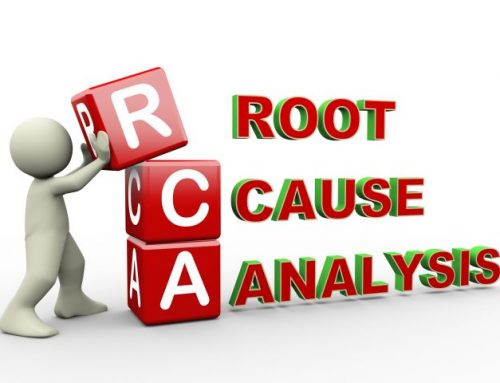Project Description
Why Attend
Condition monitoring has grown into significant factor to increase profits within a wide variety of industries. Vibration Analysis is one of the most powerful condition based maintenance technologies, and the basis of many predictive maintenance programs.
The future advancement of equipment condition monitoring technologies is inherently tied to the application and development of on-line or permanently installed systems.
For many industrial facilities, on-line vibration monitoring systems are used to safeguard machinery systems from failures, and therefore installed only on critical equipment. The objective is to eliminate process downtime through equipment that is totally available and reliable.
This course is designed to provide a practical and comprehensive overview of system modules, installation concerns, and benefits of Vibration Monitoring.
Course Objectives
By the end of the course, among various achievements, participants will get specialist insight into:
Apply systematic techniques in machinery vibration monitoring, analysis and implement the predictive maintenance strategies and procedures
Identify the various maintenance strategies used in vibration analysis and determine the factors which influence maintenance strategies.
Discover the various types & causes for machinery failure and recognize modern maintenance philosophy including its tasks & strategies.
Increase in-depth understanding on machinery vibrations such as the various equipment & processes typically monitored by vibration analysis as well as the typical vibration problems and the simplest form of vibrating system.
Who should attend
This course provides an overview of all significant aspects and considerations of vibration analysis for rotating equipment in accordance with the most updated maintenance techniques for those who are involved in reliability, rotating equipment, process, control and instrumentation of rotating equipment This includes Engineers, maintenance supervisors, mechanical foremen, specialists and other technical staff.
Course Outline
- The Maintenance Organization Mission
- Maintenance Strategies Development by Time
- Modern Maintenance Strategies • Comparison of Maintenance Strategies
- Factors which Influence Maintenance Strategy
- Machine Conditioning MCMAD (Machinery Condition MAchinery Diagnostics) Philosophy
- MCMAD Tasks
- MCMAD Strategies
- Various
- Equipment and Processes Typically Monitored by Vibration Analysis
- Typical Vibration Problems and their Approximate Percentage of Occurrence
- Rotary Mechanical Vibrations
- Other Mechanical Vibrations
- Non-Mechanical Vibration Problems
- Spring-Mass-Damper Model of Vibration
- Simplest Form
- Choosing an Industrial Sensor
- Primary Sensors Considerations
- Selecting a Measurement Parameter
- Measurement Parameters for Selected Machines
- Vibration Transducers
- Operation Range of Vibration Transducers
- Transducer
- Data Acquisition Systems and Techniques
- Data Processing Tools
- Oscilloscopes
- FFT analyzers
- Electronic Data Collectors
- Sampling Rate
- Aliasing and Averaging
- Anti-aliasing Filters
- Windowing
- Dynamic Range
- The Process of Machinery Vibration Analysis
- Fault Diagnosis Techniques
- Spectrum Analysis
- Diagnosis Faults from the Vibration Spectrum
- Synchronous
- Sub-Synchronous
- Non-Synchronous
- The Most Common
- Vibration Severity Limits
- Shaft Vibration
- Bearing Vibration
- Casing Vibration
- Standards
- ISO 2372 Chart
- ISO 10816 Chart
- the IRD
General Machinery Vibration Severity Chart
- Test Plans
- Selection of Test Equipment
- Site Inspection
- Acceptance Tests
- Baseline Test
- Resonance and Critical Speed Testing
- Specifications
- Environmental and Mounting
- Presentation of Data
- Reports
- Record Keeping
- Vibration Analysis Flowchart
- Troubleshooting Procedure
- Documentation
- Reference Guide
- Listing and Categorization
- Machinery Knowledge
- Route Selection and Definition
- Keeping Track of your maintenance
- Visual Monitoring Techniques
- Performance Monitoring Techniques Oil Quality Analysis
- Wear Particle Analysis Acoustic Emission
- Thermographs
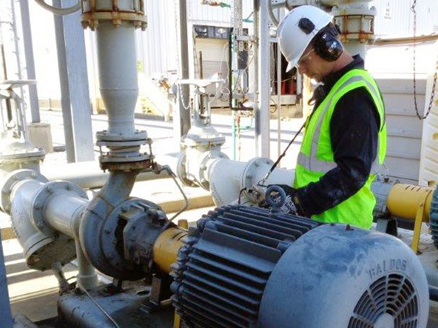
The workshop
This interactive training course includes the following training methodologies as presented on the next column based on percentage of the total tuition hours:
Lectures
Workshops & Work presentation
Case Studies & Practical Exercises
Videos, Sofware & General Discussion
The course instructor may modify the above training methodology before or during the course for technical reasons with no prior notice to participants.
Falcon Consulting Professionals is established in Greece for the last 15 years in the areas of technical consulting and professional training for the local industries. Falcon is expanding in GCC, aiming to provide the best consulting and training solutions to the industries of the region. Falcon’s instructors are accredited trainers and highly experienced in their fields, as well as adult training. We aspire to build our business relationships on mutual trust. The achievement of results with an emphasis on innovation and sustainability, quality, cost analysis and time scheduling are non-negotiable from the conceptual phase of the training.
